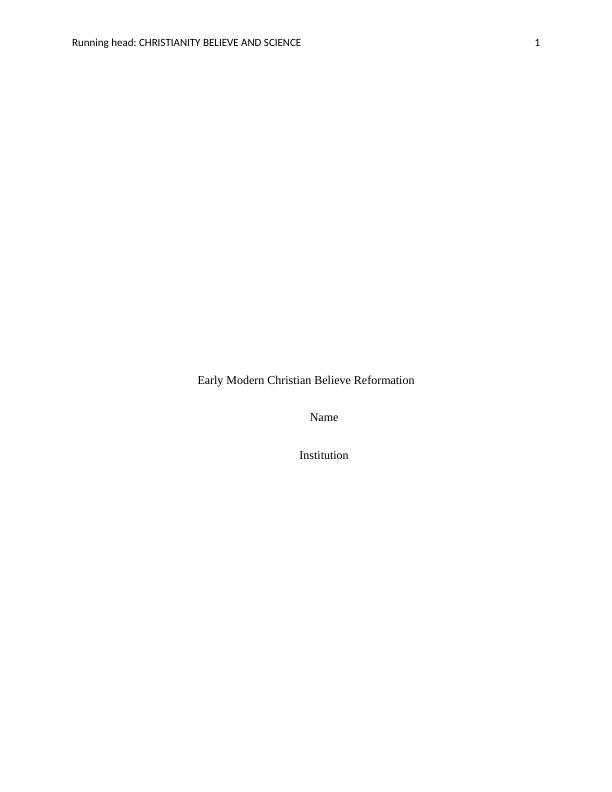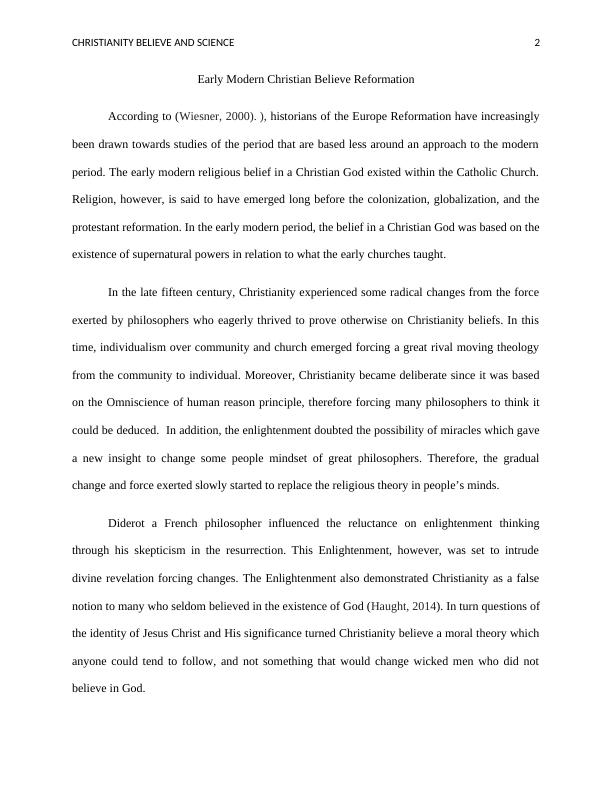Early Modern Christian Believe Reformation
5 Pages1086 Words110 Views
Added on 2023-06-11
About This Document
This article discusses the impact of early modern Christian beliefs on the Reformation and the emergence of atheistic ideas like Marxism and Liberal Protestantism. It explores the influence of philosophers like Diderot and Karl Marx, and the impact of the Enlightenment on Christianity. The article also discusses the impact of Liberal Protestantism and the views of scholars like Hans Urs von Balthasar and Karl Rahner on Roman Theology.
Early Modern Christian Believe Reformation
Added on 2023-06-11
ShareRelated Documents
End of preview
Want to access all the pages? Upload your documents or become a member.
[PDF] A Christian Introduction to Philosophy
|9
|2786
|142
Relation between the Historical Periods
|5
|1424
|48
The Scientific Revolution and the Enlightenment PDF
|5
|880
|139
Enlightenment and Enthusiasm
|11
|3321
|71
Impact of Scientific Revolution on Ancient Beliefs and Western Society
|4
|737
|155
Origin Stories and Destiny in Theology and Religious Studies
|5
|1181
|342


